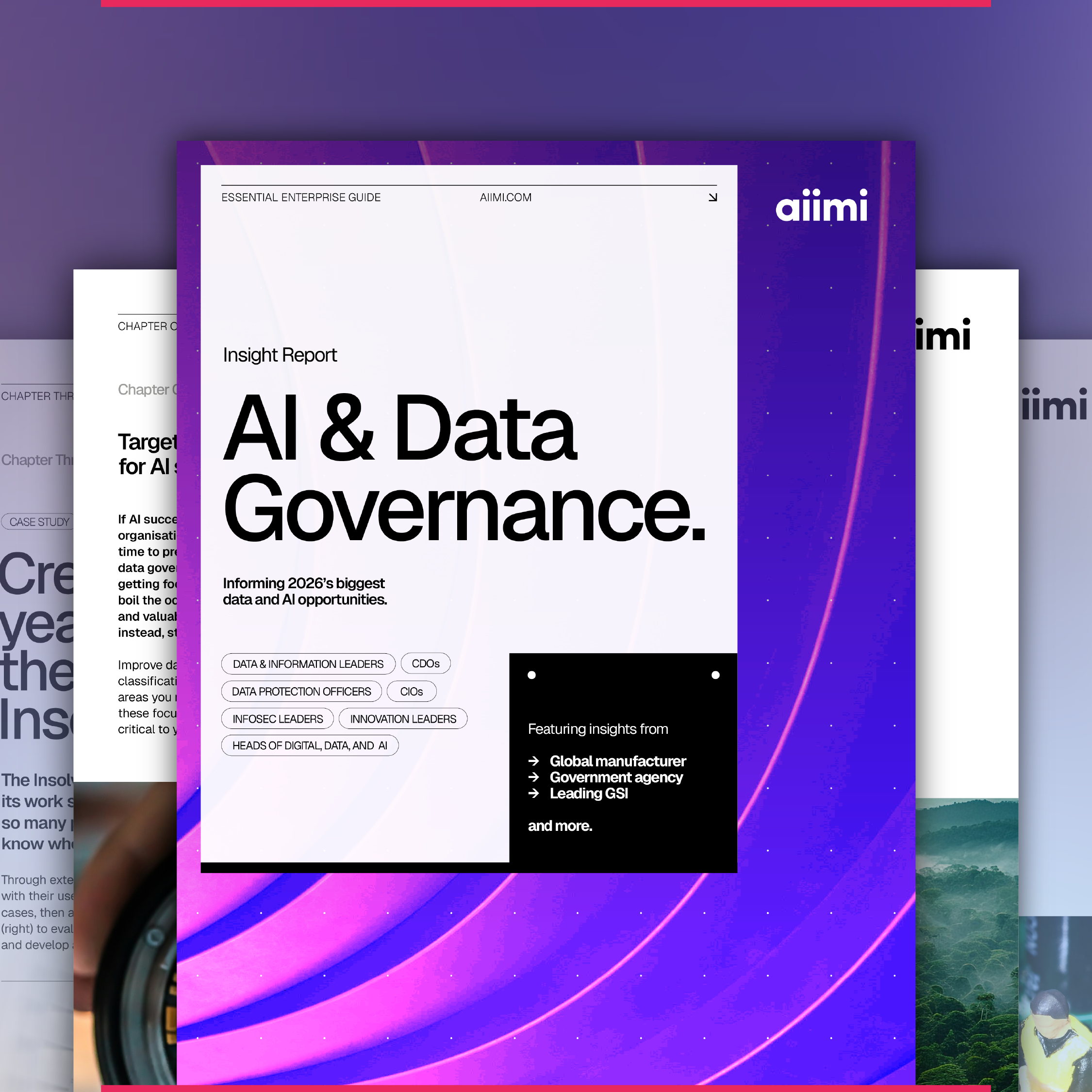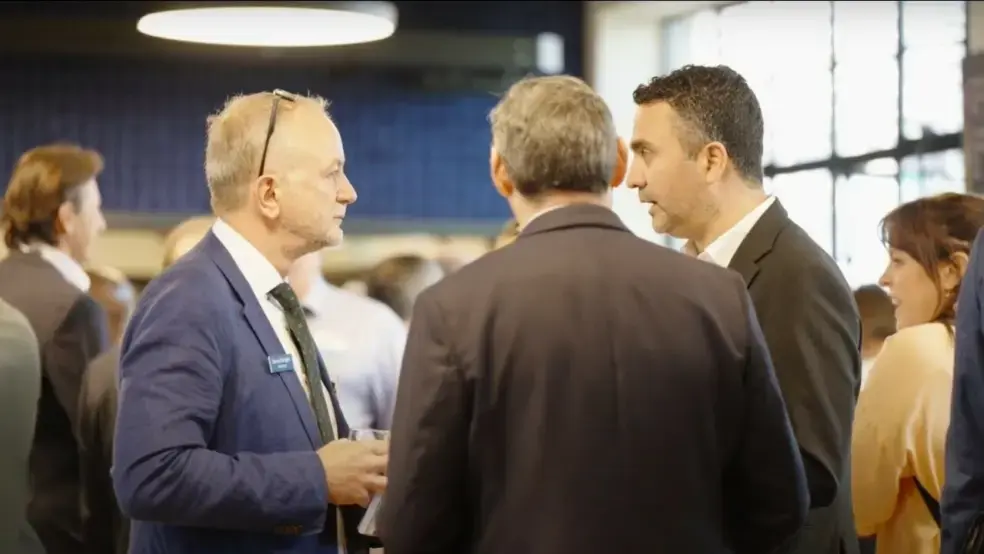World Mental Health Day: A forum with recent graduates

With studies highlighting that 16-24 year olds are particularly vulnerable to mental health issues, there’s a clear need for organisations to ensure they’re supporting recent graduates. Ethan Attwood, Technical Consultant at Aiimi, shares the discussion points from our recent Graduate Forum on World Mental Health Day 2019.
Earlier this month, Thursday 10th October to be precise, was World Mental Health Day 2019. This year, the theme was suicide prevention; an initiative with far too much necessity and, historically, far too little focus in UK institutions. But, thanks to a newly energised generation entering administrative roles, mental wellbeing and care programs are starting to gain traction in our universities.
To acknowledge the significance of World Mental Health Day, we held a forum amongst our recent graduates at Aiimi to hear their thoughts on what has been done in their circles to support mental wellbeing, and what could be improved in the future.
Honesty and openness were strongly encouraged, and in the spirit of sharing, we gained a valuable insight into the transition between university and work life.
I’ve selected the various perspectives that follow from the recurring themes which crystallised out of our discussions. I hope they’ll be useful in representing the challenges and concerns which face graduates starting out in the workplace. If you’re a fellow graduate, perhaps you’ll find some comfort in hearing what other grads are feeling. If you’re an employer, I hope it might encourage you to set up a similar discussion in your workplace. And if you’re a colleague of any graduates, I hope it will help you to understand how best to help them as they find their feet in the workplace.
Making communications count
Fittingly for a group discussion, our first theme was communication. During the transition from higher education into industry, a graduate encounters various networks of communication: with prospective and eventually new employers, contacts providing references, universities checking on the progress of their alumni. Conversing with ten strangers a day when you’re not an experienced jobseeker can be daunting for a new graduate. Many reported finding these interactions to be impersonal and draining, particularly from their academic institutions. We’ve all felt the sting of a silent response to a job enquiry. But while alumni canvassing comes with the visage of pastoral care, it can devolve into a coldly bureaucratic exercise. The questionnaire has a purpose of course – namely reporting on graduate employment stats – but perhaps it could begin with “How are you feeling after graduating?” or “Are you happy?”.
The importance of effective communication is reflected in the impact it can have on someone struggling with mental illness.
A communication barrier can often exist between a depressive and those around them, with both sides finding it difficult to reach the other. An inability to adequately express oneself is distressing for many young people, especially those without creative outlets. This intellectual isolation underscores the importance of our second theme, community.
Turning communication into community
University represents not just an opportunity to learn, but to do so cooperatively with similarly minded peers. Starting a job means a community where many members do very different jobs and are in very different stages of their lives.
In our grad forum, we discussed support systems and how colleagues checking in on you can be an essential part of easing the transition from student life. As with most good practices, this starts at the top; senior staff setting a supportive example makes all the difference. Many of us also appreciated being part of a larger intake of recent graduates, which helps to reduce feelings of isolation when you’re thrust into a new environment. Some teams have formed WhatsApp or Slack chats to provide formal and informal support. It helps to be included in the office jokes!
Ethan (bottom right) with his team in Aiimi Labs.
Overcoming self-doubt
In high-powered industries it’s important to remember that you’re there for a reason – because you have something valuable to offer.
The downside to an aspirationally-homogeneous community is that it provides a convenient yardstick with which to measure yourself against your peers. This leads into the third theme emerging from our forum – self-image. This was perhaps the most acutely relevant of all our topics when considering the motivation behind this discussion, because it let us address the biggest question asked at every mental wellbeing session we hold at Aiimi: “How do you feel?”
Many graduates remember the tremendous internal and external pressures involved with university life, and the self-motivation required to succeed. When the pressure leads to stress, many of us have felt overwhelmed and experienced self-doubt. Comparisons can become rife: I only have a bachelor’s while many of my friends have master’s degrees – am I still employable? This cycle doesn’t go away once you graduate, and in high-powered industries it’s important to remember that you’re there for a reason – because you have something valuable to offer. Because you’re good at what you do and deserve to be there. A well-timed reminder from a respected figure is a small way to have a substantial impact on a colleague’s confidence.
Being a force for change
It’s said that the only constant in life is inconstancy. Therefore, the final theme we explored in our graduate forum was change. Humans are very good at seeking it but often bad at adapting to it, which has a large hand in shaping a young person’s experience. Youth is a period of our lives dominated by constant transition, at a point where we’re least equipped to deal with it. Conversely, when there are things which we’re desperate to change, we can often find ourselves at a loss on how to affect it. It’s unsurprising that our generation struggles with the weight of expectation placed upon us in an increasingly uncertain world.
However, inevitable change can be a big positive. Change manifests in programs such as Nightline, which existed only in an embryonic state in the 1970s, but is now an essential pillar of wellbeing for UK students. Change is apparent in the shifting acknowledgement towards the invisible half of our health – our mental health – and in social media openness and activism from public figures with the platform to change minds. Change has already happened, because we’re sitting here having this discussion amongst colleagues right now. When a mind feels trapped, like there’s no way out of ill-health and nothing can ever be different, that’s when we lose loved ones to debilitating mental illnesses.
By working together to advance our workplaces for the better, we’re turning on a light at the end of the tunnel.
It was inspiring to me to see many of my colleagues give up their lunchtime to discuss this cause and hear all their perspectives and ideas first-hand. We were all there for different reasons – some sombre, some hopeful – but all motivated to learn how we can help improve the space we inhabit. I know mine has been improved by those around me. I know we’ll continue to make progress in discussing mental health at Aiimi, through our regular Aiimi Cares sessions, our partnership with providers like Health Assured, and the focus instilled in us by campaigns like World Mental Health Day. Change may be inevitable, but improvement is optional – and decided by all of us every day.
If you're a recent graduate, take a look at this previous blog for more thoughts and advice from other grads who've just started out in the workplace.
If you’re looking for mental health resources, you might like to check out some of the following options:
For Aiimi staff, don’t forget you can make use of our free, confidential Health Assured service for resources, advice and counselling
Mind – www.mind.org.uk
Samaritans – www.samaritans.org
Time to Change – www.time-to-change.org.uk
Stay in the know with updates, articles, and events from Aiimi.
Discover more from Aiimi - we’ll keep you updated with our latest thought leadership, product news, and research reports, direct to your inbox.
You may unsubscribe from these communications at any time. For information about our commitment to protecting your information, please review our Privacy Policy.



